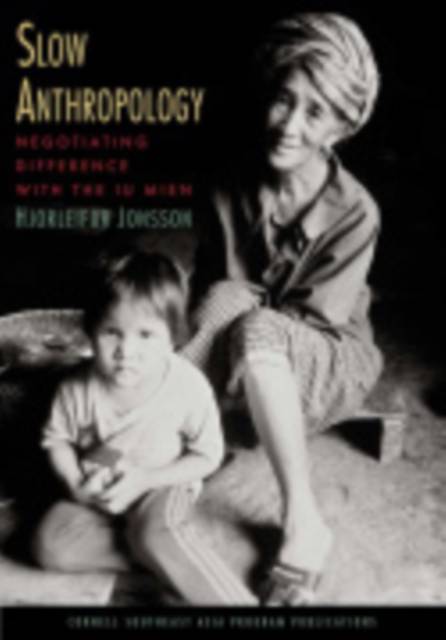
- Afhalen na 1 uur in een winkel met voorraad
- Gratis thuislevering in België vanaf € 30
- Ruim aanbod met 7 miljoen producten
- Afhalen na 1 uur in een winkel met voorraad
- Gratis thuislevering in België vanaf € 30
- Ruim aanbod met 7 miljoen producten
Omschrijving
Slow Anthropology considers the history of the Iu Mien, an upland Laotian minority caught in the disruptions of the Vietnam-American war. This study challenges the prevailing academic theory that groups living in the hinterlands of Southeast Asia have traditionally fled to the hills, seeking isolated independence and safety. As part of his challenge, Jonsson highlights the legacies of negotiating difference that have guided the Iu Mien in interactions with their neighbors. Jonsson engages with southern China and Southeast Asia in premodern times, relays individual reports from the war in Laos, describes contemporary village festivals in Thailand, and explores community and identity among Southeast Asian immigrants in the United States. His study questions Western academic narratives that oversimplify Asia's minorities in order to define and stabilize Western identities.Responding to James C. Scott's characterization of the Southeast Asian highlands as a zone of refuge sought by minorities fearing oppression from lowland states, Slow Anthropology argues that evidence of a highland "disconnect" was, in fact, symptomatic of recent social collapse. Voluntary segregation has not been a historically typical condition in Asia. The author demonstrates that negotiation among different groups has been vital to the region, as play and intersubjectivity have been for human evolution. Slow Anthropology advocates for studies that acknowledge the ways in which Southeast Asian minorities have adapted to change, appropriated ideas from their neighbors, and built their own complex identities.
Specificaties
Betrokkenen
- Auteur(s):
- Uitgeverij:
Inhoud
- Aantal bladzijden:
- 172
- Taal:
- Engels
- Reeks:
- Reeksnummer:
- nr. 64
Eigenschappen
- Productcode (EAN):
- 9780877277941
- Verschijningsdatum:
- 15/08/2014
- Uitvoering:
- Hardcover
- Formaat:
- Ongenaaid / garenloos gebonden
- Afmetingen:
- 183 mm x 259 mm
- Gewicht:
- 544 g

Alleen bij Standaard Boekhandel
Beoordelingen
We publiceren alleen reviews die voldoen aan de voorwaarden voor reviews. Bekijk onze voorwaarden voor reviews.











